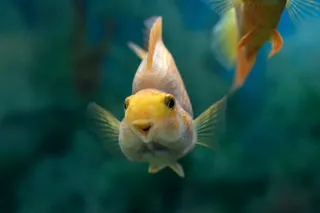If you can't stand the heat, you're not an echidna, as the saying (almost) goes. These egg-laying mammals are unusual for several reasons. One of those reasons, it turns out, is that their ability to lower their body temperatures makes them largely indifferent to their homes burning down around them. The short-beaked echidna, Tachyglossus aculeatus, is one of four living species of echidna. Like the platypus, echidnas are Australian mammals that lay eggs instead of bearing live young. They do feed their young milk, in the mammalian tradition, though it oozes straight out of their nipple-less skin. Unlike a platypus, a short-beaked echidna doesn't have a duckbill or swim in streams. But it makes up for those deficits with spines and a long, bendy tongue built for catching bugs. T. aculeatus also has the power to dramatically reduce its body temperature. It often enters a chilly state called torpor. During ...
Echidnas Are Too Cool to Be Bothered by Fires
Discover how the short-beaked echidna survives in fire-prone areas by reducing body temperature and entering torpor.
More on Discover
Stay Curious
SubscribeTo The Magazine
Save up to 40% off the cover price when you subscribe to Discover magazine.
Subscribe












